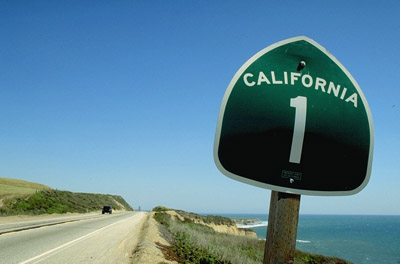California is particularly welcoming to illegal aliens. Democrat Governor Jerry Brown reportedly told a room full of Mexicans in August that they are “all welcome in California.”
In addition, California is sanctuary state (bad for public safety), is introducing drivers licenses for illegal aliens in January (at a cost of at least $141 million to the state) and offers in-state college tuition for illegal aliens. The state also provides financial aid for illegal alien students, 20,000 of whom pursued it last year. That’s 20,000 college slots taken by foreigners that are then unavailable for citizen students.
What a magnet.
All this liberal generosity is expensive, as calculated by the Federation for American Immigration Reform:
The Fiscal Burden of Illegal Immigration on California Taxpayers (2014)The Sacramento Bee notes the results from a new Census Bureau report.Californians bear an enormous fiscal burden as a result of an illegal alien population estimated at almost 3 million residents. The annual expenditure of state and local tax dollars on services for that population is $25.3 billion. That total amounts to a yearly burden of about $2,370 for a household headed by a U.S. citizen.
Census Bureau: California still has highest U.S. poverty rate, by Dan Walters, Sacramento Bee, October 17, 2014California continues to have – by far – the nation’s highest level of poverty under an alternative method devised by the Census Bureau that takes into account both broader measures of income and the cost of living.
Nearly a quarter of the state’s 38 million residents (8.9 million) live in poverty, a new Census Bureau report says, a level virtually unchanged since the agency first began reporting on the method’s effects.
Under the traditional method of gauging poverty, adopted a half-century ago, California’s rate is 16 percent (6.1 million residents), somewhat above the national rate of 14.9 percent but by no means the highest. That dubious honor goes to New Mexico at 21.5 percent.
But under the alternative method, California rises to the top at 23.4 percent while New Mexico drops to 16 percent and other states decline to as low as 8.7 percent in Iowa.
The only other state to approach California in the alternate rankings is Nevada at 20 percent, although Washington, D.C., is close at 22.4 percent.
Ever since the Census Bureau first published its “supplemental poverty measure” rankings that placed California at the top a few years ago, poverty has evolved into a political issue.
It’s now routinely cited in official reports and legislative documents, and Neel Kashkari, the Republican candidate for governor, has tried to make it an issue in his uphill challenge to Democratic Gov. Jerry Brown, even spending several days in Fresno posing as a homeless person to dramatize it.
The Public Policy Institute of California used a similar methodology last year to gauge poverty in the state’s 58 counties, called a California Poverty Measure.
It pegged the statewide poverty rate at 22 percent and found some of the highest rates in the San Francisco Bay Area and coastal communities usually considered affluent due to their high costs of housing. Los Angeles had the highest rate in the state, 26.9 percent, followed by Napa at 25.5 percent.
 The Golden State remains #1 in a most unfortunate category: poverty. Democrat regulatory policies strangling business certainly cause a lot of joblessness which keeps millions poor. Plus, the purposeful admission of millions immigrants and illegal aliens is a tremendous poverty driver.
The Golden State remains #1 in a most unfortunate category: poverty. Democrat regulatory policies strangling business certainly cause a lot of joblessness which keeps millions poor. Plus, the purposeful admission of millions immigrants and illegal aliens is a tremendous poverty driver.